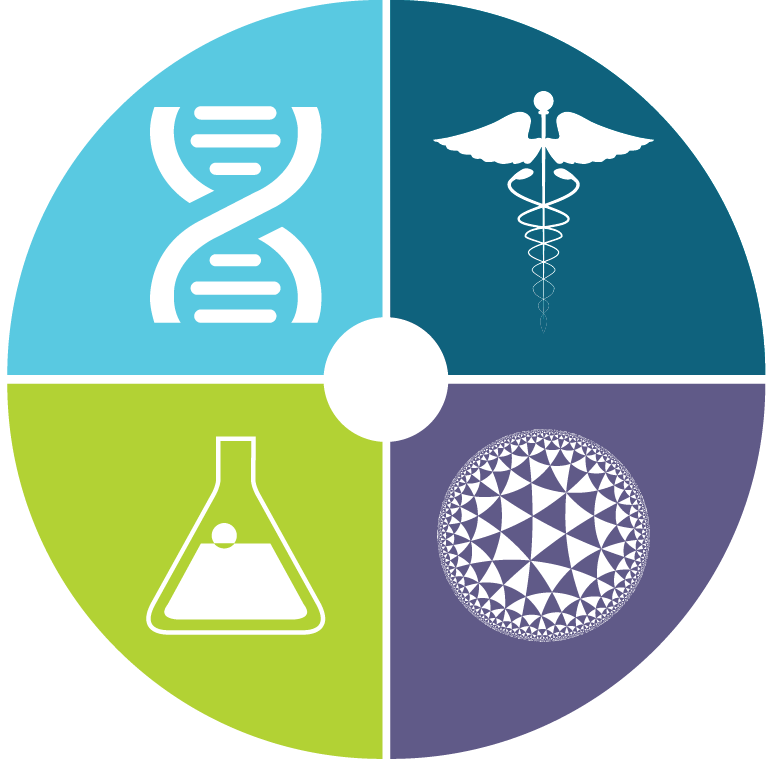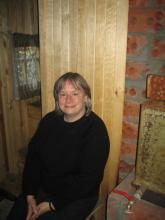Jeanmarie Rouhier-Willoughby
Ph.D., Slavic Languages and Literatures, University of Virginia, January 1993
Dissertation title “The Voice-Aspect Relationship of Russian Verbs: A Case Study of Reversible Action and Phasal Verbs”
M.A., Slavic Languages and Literatures, University of Virginia, May 1986
B.A., Russian, English and German, James Madison University, summa cum laude, May 1984
Research in Progress:
- Russian Folk Religious Imagination, an online multimedia critical edition
- Sacred Springs in the GULAG, book.
Areas of interest:
- Russian, Siberian, Central Asian vernacular religion
- Urban Russian life-cycle and yearly-cycle rituals
- Legends
- Russian verbal semantics
- Cognitive linguistics
My research focuses on identity and folklore in contemporary Russia. My first book, Village Values: Negotiating Identity, Gender and Resistance in Urban Russian Life-Cycle Rituals, was the result of ten years of fieldwork on birth, wedding and funeral customs in Russian cities across the country. My goal was to demonstrate how traditional folk practices and beliefs interacted with both Soviet-era official, institutional policies as well as with non-native practices imported from the west. Of particular concern was how the rituals allowed people to negotiate their social, familial and gender identities through resistance and accommodation to the messages from these varied sources. My current research focuses on the religious revival in post-socialist Russia. I am working on a book tentatively titled Sacred Springs in the GULAG. Believers' interactions with these springs illustrate the complex strands of contemporary Siberian Russian identity. I am exploring the legacy of the USSR and attitudes toward the Soviet past, the role of the springs within the community of believers over time, and the memory of GULAG victims and their own parallel role as "victims" in the socialist past and post-socialist present.
Courses taught (at UK and previously):
- Russian Folklore
- Introduction to Folklore and Mythology
- Russian Language
- Sociolinguistics of the Former Soviet Union
- Language and Culture
- Semantics and Pragmatics
- Cognitive Linguistics
- Vampires: Evolution of a Sexy Monster
- World of Language
Ph.D., Slavic Languages and Literatures, Primary Concentration in Slavic Linguistics, minor in Slavic Folklore, University of Virginia
- Village Values: Negotiating Identity, Gender and Resistance in Contemporary Urban Russian Life-Cycle Rituals, Bloomington: Slavica, 2008.
- Russian Religious Folk Imagination (www.rch.uky.edu/RFRI/), web-based critical edition of Russian legends, song, rituals, icons in collaboration with Tatiana Filosofova (University of Kentucky) and Yelena Minyonok (Institute of World Literature)
- "Contested Memory in the Holy Springs of Western Siberia," 2020, Sarah De Nardi, et al, eds., Routledge Handbook of Memory and Place, 400-407.
- "Memory and Martyrs. Holy Springs in Western Siberia." Sacred Waters: A Cross-Cultural Compendium of Hallowed Springs and Holy Wells, 2020, Celeste Ray, ed., 230-239.
- “Изучение легенды в Западной Европе и США в XX-XXI столетиях [The Study of the Legend in Western Europe and the USA in the 20th and 21st Centuries], Siberian Philological Journal 4, 2018, 28-36.
- “Представления о жанрах несказочной прозы в американской фольколористике [Conceptions of Non-Tale Genres in American Folkloristics],” Iazyki i fol’klor korennykh narodov Sibiri 36, 2018, 96-100.
- “Северoaмериканская фольклористика: Современные подходы и понятия,” Iazyki i fol’klor korennykh narodov Sibiri 32, 2017, 98-105.
- “Back to the Future: Popular Belief in Russia Today,” co-authored with Tatiana Filosofova, The Changing World Religion Map, Volume III, 2015, Stanley Brunn, ed.1531-1554.
- “The Gulag Reclaimed as Sacred Space: Negotiation of Memory at the Holy Spring of Iskitim,” Laboratorium 1 (2015), 51-70.
- “The Holy Spring of Iskitim, Siberia: The Intersection of Folk Religion, Orthodox Doctrine, and Communist Ideals,” American Contributions to the 15th International Congress of Slavists, Minsk, August 2013, David M. Bethea and Christina Y. Bethin, eds. 30-43.
- “Saints, Sinners, and Spirits: Women in the Russian Legend Tradition,” The Paths of Folklore: Essays in Honor of Natalie Kononenko, 2012, 127-143.
- "Злі/добрі чужинці: євреїта цигани у слов’янських народних легендах,” Сучасна зарубіжна етнологія. Антологія. Том2. (“The (Un)Clean Other: Jews and Roma in Russian Folk Legends”), 2011, 409-415.
- “Folk Characteristics of Contemporary Russian Life Cycle Rituals,” American Contributions to the 14th International Congress of Slavists, Ohrid, 2008, 187-202.
- "The Contemporary Urban Russian Funeral: Folk Tradition and Innovation," Folklorica XII, (2007): 109-128.
- "Игра в современной городской русской свадьбе" [Play in the Contemporary Urban Russian Wedding]," in the volume Traditsionnaia kul’tura. Poiski. Interpretatsii. Materialy, (2006): 71-80.
- "Russian Birth Customs: Ancient Traditions in Modern Guise," Slavic and East European Journal 47:2, 227-250, 2003.
- "Victory Day Celebrations: Memory and Validation," Folklorica VIII:2, 24-34, Fall 2003.
- "Не посылай меня на чужую сторону. Траурные аспекы свадьбы северной России 19ого века глазами американского исследователя [Do Not Send me to a Strange Land. Funerary Aspects of the 19th Century Northern Russian Wedding Through the Eyes of an American Researcher]," Sibirskii filologicheskii zhurnal, No. 2: 13-23, 2003.



